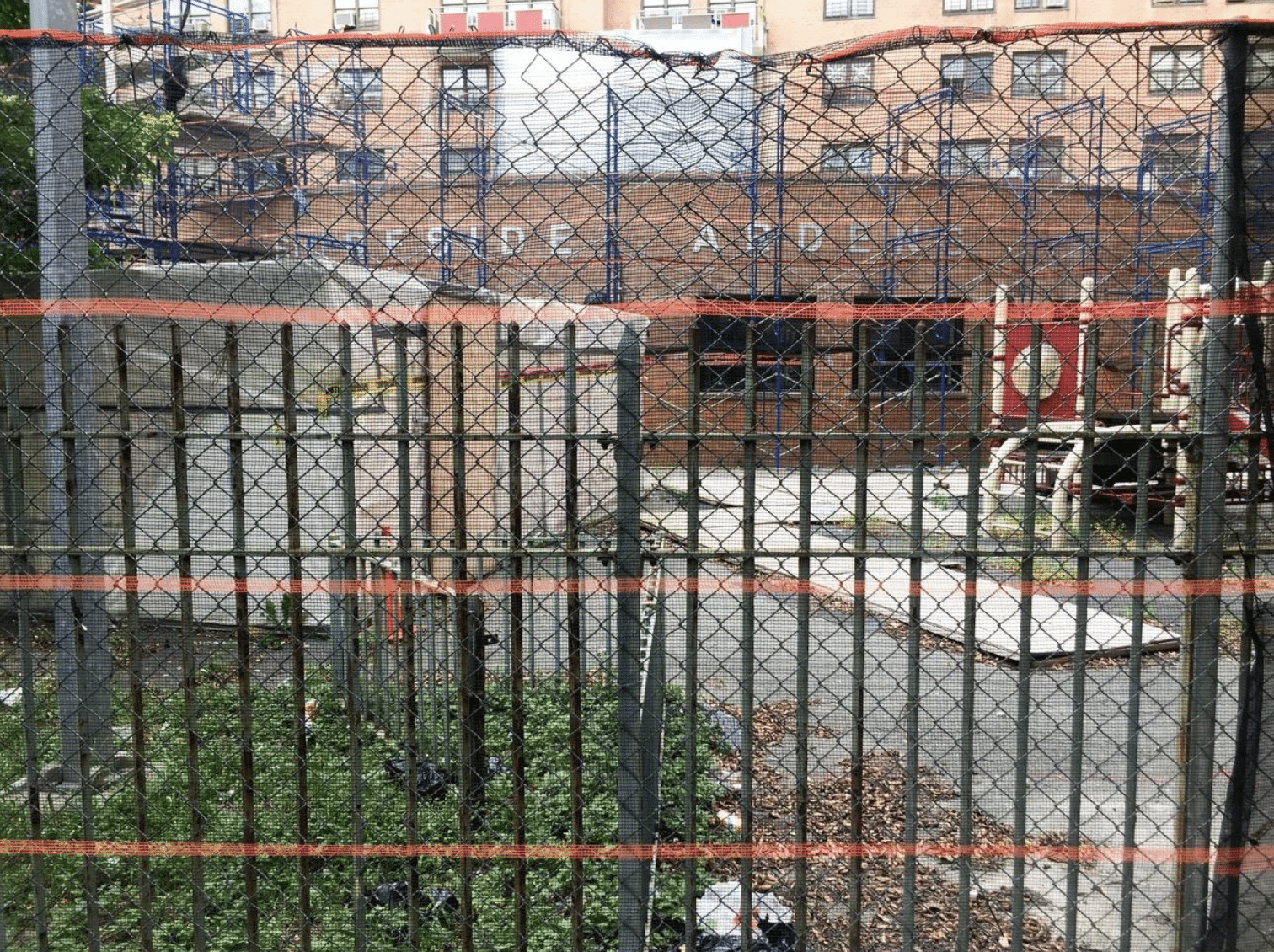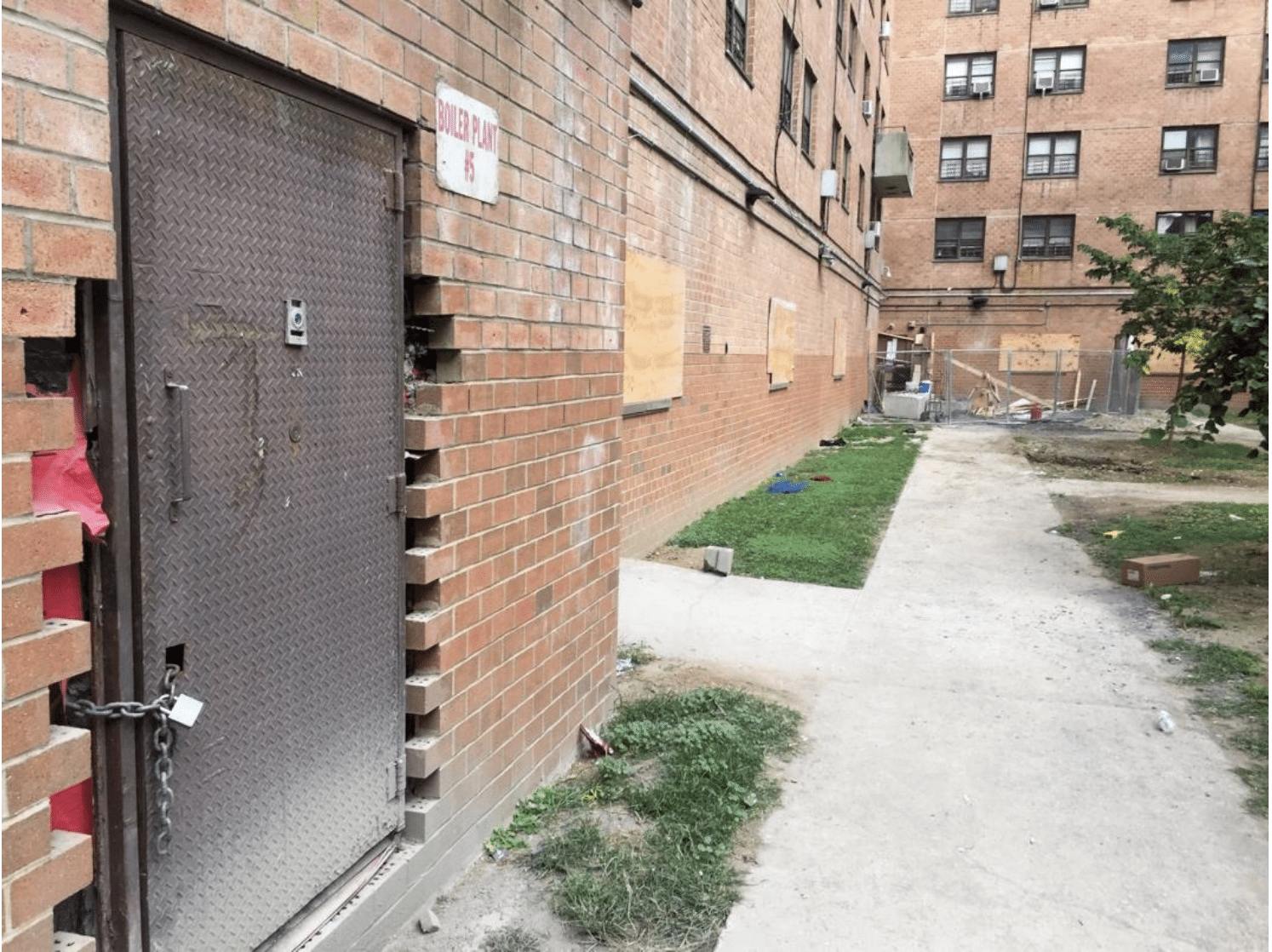5 Years Since Sandy: Coney Island Community Center Still Not Repaired


CONEY ISLAND – This October marks the five-year anniversary of Superstorm Sandy’s destructive landfall here in New York, yet some areas of the city seem to have been more neglected in recovery efforts.
The Surfside Gardens Community Center in Coney Island is one such place that is still out of commission. The damage has not yet been repaired by the New York City Housing Authority, even though the ground was broken on a $41 million FEMA funded makeover of the complex back in August 2016.
The site of the non-operational community center is distressing; the construction appears haphazard and disordered, the building is intact but windowless, doors are boarded up, and the playground equipment sits behind multiple layers of chain-link fence.
Before Sandy, the community center offered after-school activities, public education, and child-care services that made it a valuable asset to the residents of the Surfside Gardens Housing Development. For the past five years, however, many of the area’s youth have had to simply do without these kinds of support, prompting some residents to fear that they could be more vulnerable to gun violence, something the community has been battling for years.
In response to the lack of city-sponsored programming, the community in Coney Island has created its own initiatives to support both the youth and adults of the area.
“Coney Island is pretty small. If one community center closes, the neighborhood feels it,” said Mathylde Frontus, the founder of the Coney Island Anti-Violence Collaborative. “And then with Surfside’s closure, other centers in the area have had to absorb those programs.”
The collaborative is a grassroots organization created by residents whose goal is to address gun violence through conflict mediation and relationship building, services often accessible in a community center environment.
Frontus says that the initiative was created as an emergency response to a particular incident where two men lost their lives in 2013, and since then its membership has grown to over 300.

Another community-run task force is Operation HOOD (Helping Our Own Develop). The non-profit, working in partnership with the NYPD 60th Precinct seeks to provide high-risk youth support with health education programs, job interview training, and conflict mediation.
Launched in February 2016, the non-profit gained positive attention in the media by contributing to over 200 days without a single incident of gun violence in Coney Island.
Another hurdle the community has to contend with is bureaucracy.
Zodet Negrón, the Deputy Press Secretary for the New York Housing Authority said that since 2012, while NYCHA still oversees the physical structures community centers are located on, it isn’t involved with the administration of the centers themselves. In Coney Island, most of these are now under the oversight of the Brooklyn Community Services Cornerstone Program.
Although the city received a $3 billion grant for Sandy recovery from FEMA in 2015, residents claim that work on the community center is moving at a snail’s pace.
City Councilman Mark Treyger assured that funds are being allocated toward the center’s repair. At a recent community resiliency meeting, he stated “We were able to make sure that FEMA included funds for repairing the community centers,” adding “It will be fixed!”
An NYCHA spokesperson said that NYCHA expects to complete construction by the end of this year and is working with the Department of Youth and Community Development (DYCD) to have a program provider for the center as soon as possible.
In the meantime, residents wait patiently on the city while turning to local outreach organizations for services the community center once provided.




